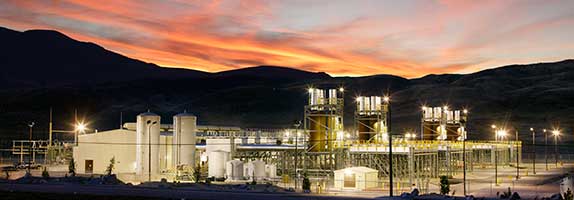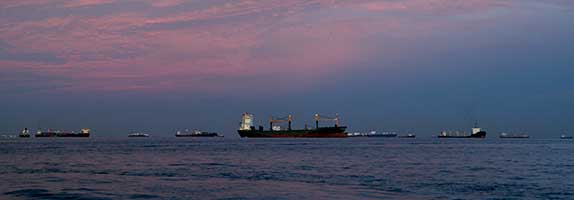


New Wärtsilä analysis shows EU ETS and FuelEU Maritime will close price gap, creating policy blueprint to accelerate the global transition to sustainable fuels
Sustainable shipping fuels could reach cost parity with fossil fuels as early as 2035 with the help of decisive emissions policy such as carbon taxes and emissions limits, according to a new report launched today by technology group Wärtsilä.
The report, titled ‘Sustainable fuels for shipping by 2050 – the 3 key elements of success’, reveals that the EU Emissions Trading Scheme (ETS) and FuelEU Maritime Initiative (FEUM)[i] will see the cost of using fossil fuels more than double by 2030.[ii] By 2035, they will close the price gap between fossil fuels and sustainable fuels for the very first time.[iii]
Transporting 80% of world trade, shipping is the engine room of the global economy. However, despite being the most efficient and environmental way to transport goods, it emits 2% of global emissions, equivalent to the annual emissions of Japan. Without action, this could increase by more than 45% by 2050.[iv]
In 2023, the International Maritime Organization (IMO) set a target of achieving net zero emissions by 2050. Existing decarbonisation solutions, such as fuel efficiency measures, could cut up to 27% of emissions[v]. Wärtsilä's report argues that sustainable fuels will be a critical step in eliminating the remaining 73% but radical action is needed to scale them. The industry suffers from a “chicken and egg” challenge – ship owners won’t commit to a fuel today that is expensive, only produced in small quantities, and may be usurped by another fuel that scales faster and more affordably. Meanwhile, it is difficult for suppliers to scale production without clear demand signals.
Wärtsilä has produced new modelling that shows a timeline of which fuels are likely to become widely available on a global scale, when and at what cost. To accelerate this timeline, the report argues that decisive policy implementation, industry collaboration, and individual operator action must coalesce to scale the production of these fuels.
Roger Holm, President of Wärtsilä Marine & Executive Vice President at Wärtsilä Corporation says: "Achieving net zero in shipping by 2050 will require all the tools in the toolbox, including sustainable fuels. As an industry, we must focus on coordinating action across policymakers, industry and individual operators to bring about the broad system change required to quickly and affordably produce a mix of sustainable fuels. Policy in Europe is showing just how impactful action at the international level can be, closing the cost gap between fossil- and low-carbon fuels for the first time.”
Decisive Policy: Wärtsilä’s modelling shows sustainable fuels will be 3-5 times more expensive than today’s fossil fuels in 2030. As ETS and FEUM show, policy is key to closing the price gap. The report argues that policymakers should:
Industry collaboration: The sector must collaborate with stakeholders from inside and outside shipping. The report calls on industry to:
Individual actions: Every euro an operator saves in fuel costs at today's prices, could be worth 3-5 times that by 2030. That means companies such as Carnival Corporation, which made a 5-10% efficiency gain through its Service Power Upgrade Program, could cut its fleetwide fuel costs by as much as $750 million per year in 2030.[vi] All operators can benefit from improving the efficiency of their vessels – the technology is readily available today.
Holm adds: “If there is one take away from our report, it is that smaller operators need not feel powerless. They have a major role in accelerating towards net-zero emissions shipping. Taking steps to improve fuel efficiency and invest in fuel flexibility can deliver immediate returns, reducing both emissions and operating costs. But action must be swift – we have the lifecycle of just a single vessel to get this right.”
Investing in fuel flexibility is the most financially viable way to avoid the risk of stranded assets. Wärtsilä has been developing multiple fuel options. Most recently, Wärtsilä launched the first commercially available 4-stroke engine for ammonia fuel, which can immediately reduce emissions by over 70%, compared to diesel.
The report provides a roadmap for the future of sustainable fuels, identifying how the industry can more rapidly and affordably scale these fuels and achieve full decarbonisation by mid-century – within the lifetime of just a single vessel. You can access and download the report here.
Media contact for more information on this release:
Isabella Alder
Positioning and Strategic Communications Manager
Wärtsilä Marine
Tel: +44 (0) 7792 681 757
marine.media@wartsila.com
Image caption: The report, titled ‘Sustainable fuels for shipping by 2050 – the 3 key elements of success’, provides a roadmap for the future of sustainable fuels, identifying how the industry can more rapidly and affordably scale these fuels and achieve full decarbonisation by mid-century – within the lifetime of just a single vessel.
All Wärtsilä releases are available at https://www.wartsila.com/media/news-releases and at http://news.cision.com/wartsila-corporation where also the images can be downloaded. Use of the image(s) is allowed only in connection with the contents of this press release. Wärtsilä images are available at https://www.wartsila.com/media/image-bank
Wärtsilä Marine in brief:
Wärtsilä Marine is a global pioneer in power, propulsion and lifecycle solutions for the marine market. We develop industry-leading technologies, advancing maritime's transition to new fuels. We support building an end-to-end digital ecosystem where all vessels and ports are connected. Ultimately, Wärtsilä Marine is driving the shipping industry forward on its journey towards a decarbonised and sustainable future through our broad portfolio of engines, propulsion systems, hybrid technology, exhaust treatment, shaft line solutions and digital technologies, as well as integrated powertrain systems. Our offering, which is underpinned by our performance-based agreements, upgrades, lifecycle solutions, decarbonisation services, as well as an unrivalled global network of maritime expertise, delivers the efficiency, reliability, safety, and environmental performance needed to support a safe and sustainable future for our customers, our communities and our planet.
www.wartsila.com/marine
Wärtsilä in brief
Wärtsilä is a global leader in innovative technologies and lifecycle solutions for the marine and energy markets. We emphasise innovation in sustainable technology and services to help our customers continuously improve environmental and economic performance. Our dedicated and passionate team of 17,800 professionals in more than 280 locations in 79 countries shape the decarbonisation transformation of our industries across the globe. In 2023, Wärtsilä’s net sales totalled EUR 6.0 billion. Wärtsilä is listed on Nasdaq Helsinki.
www.wartsila.com
____________________________________________________________________________
[i] EU ETS and FEUM come into effect from 1st January 2024 and 2025 respectively.
[ii] See figure 1 in report.
[iii] Applicable to fleets operating in Europe only. All sustainable fuels modelled in the new report by Wärtsilä (Liquified Natural Gas, Methanol, Ammonia, compressed Hydrogen, and Marine Battery Packs) have the potential to be more affordable than Low Sulphur Fuel Oil (the industry's dominant fossil fuel) by 2035 when EU ETS and FuelEU Maritime are factored in. Only Liquid Hydrogen remains more expensive, ranging from 1.2-1.5x the cost of Low Sulphur Fuel Oil. See figure 2 in report.
[iv] https://www.imo.org/en/ourwork/Environment/Pages/Fourth-IMO-Greenhouse-Gas-Study-2020.aspx
[v]https://wwwcdn.imo.org/localresources/en/OurWork/Environment/Documents/FFT%20Project/Preliminary%20outputs%20for%20the%20study.pdf
[vi]Carnival Corporation Upgrading Global Fleet with Fuel- and Energy-Saving Technology (annual fleetwide fuel costs savings estimated to be $150m due to efficiency measures. 5 times this figure in 2030 would be $750m.